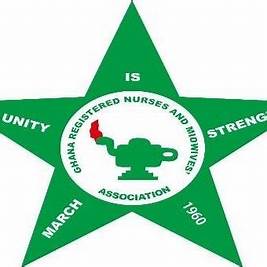
Calls for urgent resolution mount as critical health services collapse across Ghana.
The nationwide strike by the Ghana Registered Nurses and Midwives Association (GRNMA) has entered a critical phase, drawing sharp concerns from civil society and prompting parliamentary action. As the industrial action stretches into its second week, thousands of patients across the country are being denied vital health services, with no resolution yet in sight.
POSTPARTUM LOCHIA: WHAT TO EXPECT AND WHEN TO SEEK MEDICAL ATTENTION
A coalition of civil society organizations (CSOs), including the Ghana NCD Alliance, VAST-Ghana, and the Stroke Association Support Network, has warned of a looming public health disaster.
In a joint statement, the CSOs revealed that services such as dialysis, cancer care, mental health, stroke rehabilitation, hypertension and diabetes management, epilepsy, and asthma treatment have been severely disrupted due to the absence of nurses and midwives at public facilities.
“We are seeing patients being turned away from hospitals, particularly those with non-communicable diseases. The cost of private care is unaffordable for many, and this is rapidly worsening health inequities,” the statement emphasized.
In response to mounting pressure, Parliament’s Health Committee has scheduled an emergency meeting with GRNMA leadership today. The aim is to explore a possible roadmap to end the strike, which was triggered after government proposals to defer the implementation of the nurses’ new Conditions of Service from 2024 to 2026.
INJECTION PROCEDURE – NMC Osce Clinical Station
The GRNMA has remained resolute in its demand for immediate and full implementation, insisting that the delay violates their earlier agreement and undermines trust.
The government’s attempt to fill the gap by recruiting retired nurses and midwives has been met with strong opposition from GRNMA. In a statement issued today, the Association described the move as “superficial” and incapable of addressing the systemic issues at hand.
“Calling on retirees is not a sustainable or ethical solution. What we demand is respect for the signed Collective Agreement,” the Association asserted.
Key Issues
| Area | Update |
| Patient Impact | Thousands of Ghanaians—especially those with chronic conditions—are without access to essential care. |
| Government Response | Emergency measures announced, including publishing a list of 359 alternative health facilities. |
| GRNMA Position | No compromise unless the 2024 Conditions of Service are fully implemented. |
| Parliamentary Action | Health Committee scheduled to meet with GRNMA on June 12 to find a resolution. |
| Civil Society Alarm | CSOs say the situation is escalating into a humanitarian crisis. |
| Retired Staff Substitution | Proposal rejected outright by GRNMA. |
While the Ministry of Health has directed the public to alternative health facilities, the capacity of these centres remains limited. Stakeholders continue to urge both parties to prioritize public health and reach an agreement.
SURGEON LEFT ASTONISHED BY DISCOVERY OF LIVING WORM IN WOMAN’S BRAIN
Today’s scheduled meeting between Parliament’s Health Committee and GRNMA may prove pivotal. If no agreement is reached, the impact on Ghana’s healthcare system could worsen dramatically, risking lives and further undermining public confidence.
The public is encouraged to stay informed through official channels and seek care only at designated, operational facilities listed by the Ministry of Health.
Compiled by: patientlifematters.com